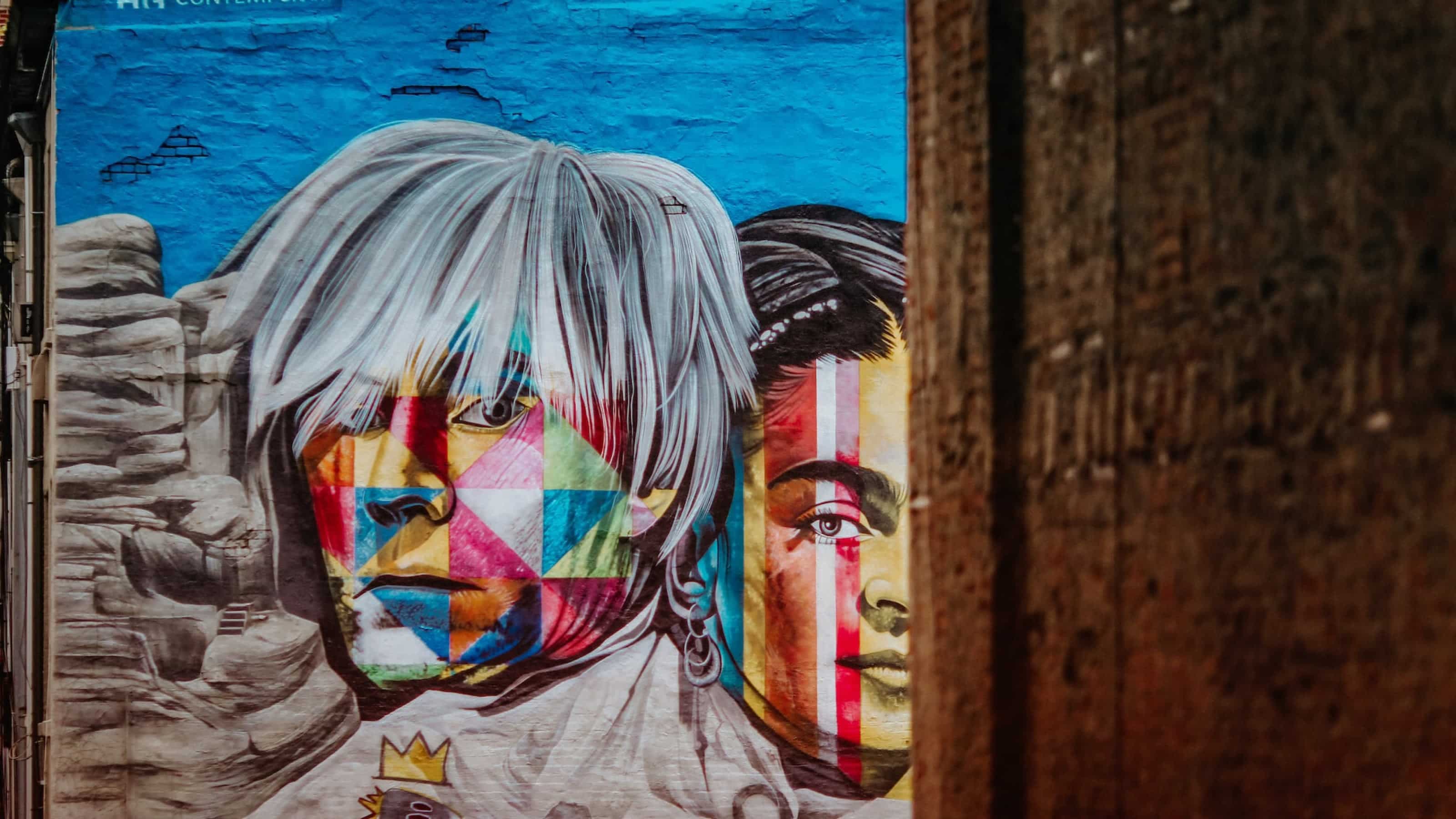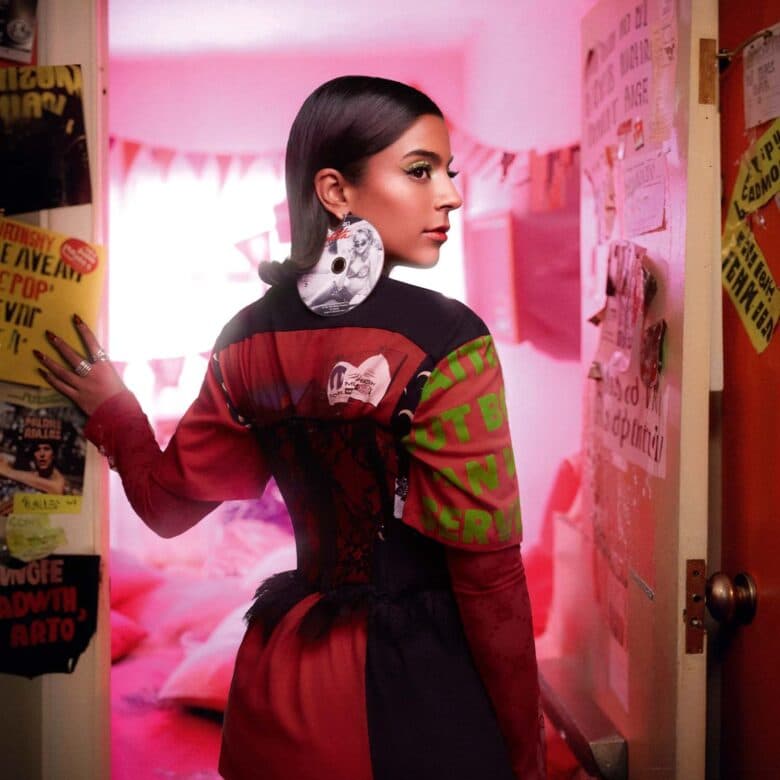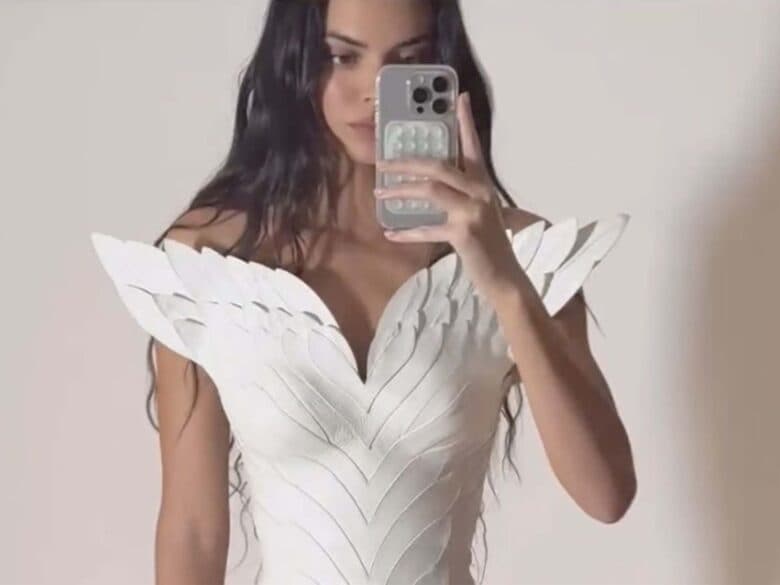We’re all going to have our 15 seconds of fame

In the late 1960s Andy Warhol famously said: “In the future, everyone will be famous for 15 minutes.” Who would have ever thought, more than 50 years later, the idea would be absurd… since no one has the attention span to focus on anything for 15 minutes?!
In 2022, attempting to achieve 15 seconds of fame on TikTok and Instagram is a daily ritual for millions. Whether it’s because of an addictive form of technology or a larger social phenomenon of narcissism, it’s undeniable that we are becoming more and more obsessed with ourselves.
As a stand-up comedian, and someone who has dedicated their adult life to pursuing a career in entertainment, I can’t help noticing the writing on the wall… Is the idea of an entertainer becoming obsolete? Are we now our own entertainers?
Nowadays you’re more likely to discover the hook of an awesome song simply by waiting for your friends to lip sync to it on Instagram Reels rather than listening to the radio. Just as I recently discovered Yung Gravy’s new hit“Betty”:“Damn Gravy, you so vicious/ You so clean, so delicious/ How come you ain’t got no missus?/ Count that paper, count the riches.”
I saw about 50 TikTok lip syncs, photo collages, choreographed dances before I ever figured out who Yung Gravy was. He’s an adorable white boy with swagger, but I digress… It’s not enough to just listen to a song any more. For many, the music and the artist are largely irrelevant. It’s how you can participate in the song that matters. TikTok video trends are easy to follow so that anyone can feel like they’re a part of something cool and creative that can draw attention to themselves.
The same idea can be applied to most aspects of film and celebrity. What made more of an impact culturally: the actual film House of Gucci or the memes and lip syncs Lady Gaga’s sassy soundbites generated? Everyone had an opinion on Will Smith slapping Chris Rock at the Oscars, but did anyone watch the films nominated? We all got obsessed with the Depp-Heard trial, but when was the last time you watched one of their films?
Maybe this focus on audience engagement is the next natural step in the evolution of entertainment. In the same way the internet democratised information, perhaps social media has led to the democratisation of fame. Reality television already opened the door to people who are famous for simply being famous. If fame doesn’t require any talent or skills, the average person, living an average life, must at some point ask themselves: “Why not me?”
With the rise of social media, micro-celebrities have become “a thing”. There are countless personalities who have managed to achieve fame on their own terms, without agents, publicists, producers and all the other gatekeepers of the entertainment industry. Maybe they’re only famous in a specific niche of society – but fame is fame and it has become more accessible than ever before.
Within ten years, it’s not out of the realm of possibility that the idea of a classic “movie star’’ will be forgotten. If books, films, television and live entertainment become less and less relevant it begs the question: what form of entertainment might replace them?
In March 2022, a situation unfolded on TikTok that the internet dubbed Womblands. In my opinion, Womblands is one of the best examples of what I predict will become a new form of entertainment: a social media drama. To summarise: Chelsea Hart, a TikTok creator did a series of videos calling out Native American creator Lance Tsosie for allegedly failing to inform them that he was sexually active with other partners before they had sex. Hart implied that this meant the sex was not consensual, and quote: “I have an ache that lives deep in my womb, Lance. And sometimes I just cry deep from my soul about it […] and you knew, you knew, you FUCKING knew!”
“Womb, Lance” was misheard by most as “womblands”. Get it? “You knew, you FUCKING knew!” became an instant viral trend, and the saga of Womblands was born. Tsosie replied with an apology. Hart didn’t stop airing their dirty laundry. The story became more complex and confusing, as another TikToker, Amanda Marie, who coincidentally looks like Hart, came forward with similar allegations about Tsosie.
A social media flurry ensued, with endless people weighing in with their opinions, as the story touched countless hot-button issues for Woke TikTok: #MeToo, consent, public shaming, white privilege, toxic masculinity, native rights, abortion and miscarriage – at one point even Nazi groups got involved in the drama. It was a trip. As it all unfolded I saw for myself how many of my friends were gripped. I couldn’t help thinking that this is going to be the future of storytelling. Wait, no – it’s not even the future, it’s the present!
It is becoming more and more normalised for people’s private dramas to become public and up for debate. It’s undeniably captivating and juicy to watch a story told in real time, from multiple perspectives, just as it is to hear other people’s opinions and commentary on whose side they’re taking and how they see the situation.
As our culture’s obsession with one’s self seems to grow deeper every year, perhaps within a few years we will all be Hart and Tsosie on a smaller scale. Imagine our break-ups, our fights with family members, colleagues and neighbours all being played out on social media, with a globalised court of public opinion to validate or condemn us. After all, what is more fascinating to us than ourselves and what other people think about us? To paraphrase Alice Walker, maybe we are (the stars) we’ve been waiting for.
It might sound like a scary, dystopian future, but who knows?! Hundreds of years ago, wealth and land and power were held in a feudal system of divine order only for kings, queens and nobility. Maybe the egalitarianism of fame will unlock new aspects of human potential and creativity, as countless unique, talented people get their moment in the spotlight. Or perhaps we’ll continue to spiral as a culture, becoming more and more the petty, begrudging gossipy teenagers we are. Only time will tell.

